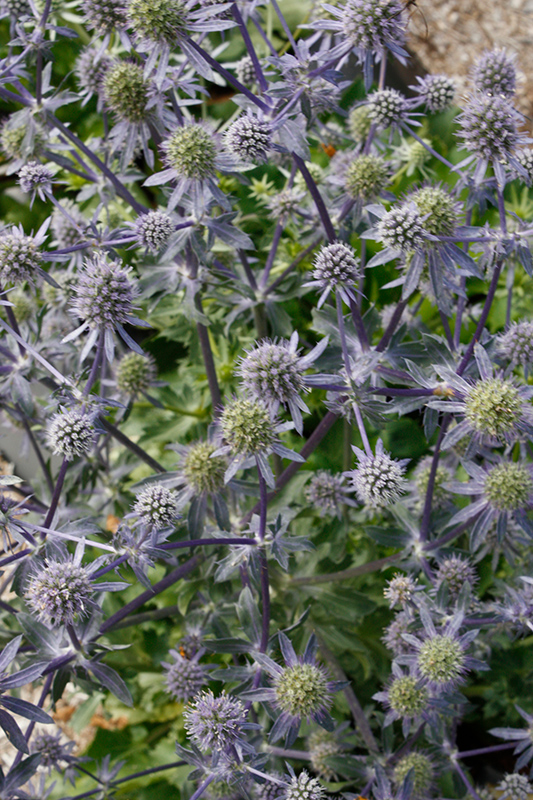18 inches
3 feet
15 inches

4a
Flat Sea Holly, Tetra Petra
Blue Glitter Sea Holly features bold clusters of steel blue ball-shaped flowers with silver bracts at the ends of the stems from early summer to early fall. The flowers are excellent for cutting. Its attractive spiny lobed leaves remain silvery blue in color throughout the season. The royal blue stems are very colorful and add to the overall interest of the plant.
Blue Glitter Sea Holly is an herbaceous perennial with an upright spreading habit of growth. Its relatively fine texture sets it apart from other garden plants with less refined foliage.
This plant will require occasional maintenance and upkeep, and is best cleaned up in early spring before it resumes active growth for the season. It is a good choice for attracting butterflies to your yard. Gardeners should be aware of the following characteristic(s) that may warrant special consideration;
Blue Glitter Sea Holly is recommended for the following landscape applications;
- Mass Planting
- Hedges/Screening
- General Garden Use
Blue Glitter Sea Holly will grow to be about 18 inches tall at maturity extending to 3 feet tall with the flowers, with a spread of 18 inches. When grown in masses or used as a bedding plant, individual plants should be spaced approximately 15 inches apart. It tends to be leggy, with a typical clearance of 1 foot from the ground, and should be underplanted with lower-growing perennials. It grows at a fast rate, and under ideal conditions can be expected to live for approximately 10 years. As an herbaceous perennial, this plant will usually die back to the crown each winter, and will regrow from the base each spring. Be careful not to disturb the crown in late winter when it may not be readily seen!
This plant should only be grown in full sunlight. It prefers dry to average moisture levels with very well-drained soil, and will often die in standing water. It is considered to be drought-tolerant, and thus makes an ideal choice for a low-water garden or xeriscape application. It is particular about its soil conditions, with a strong preference for poor, alkaline soils, and is able to handle environmental salt. It is highly tolerant of urban pollution and will even thrive in inner city environments. This is a selected variety of a species not originally from North America. It can be propagated by cuttings; however, as a cultivated variety, be aware that it may be subject to certain restrictions or prohibitions on propagation.
